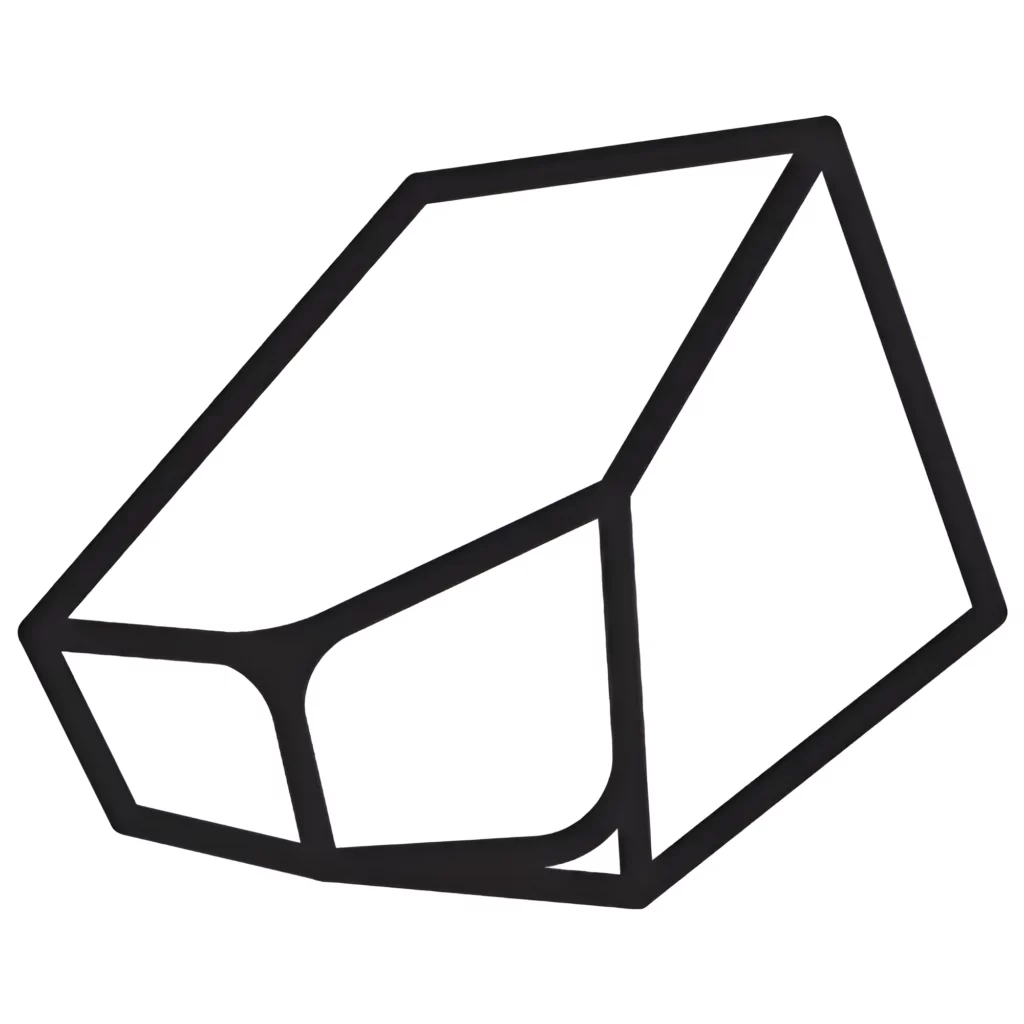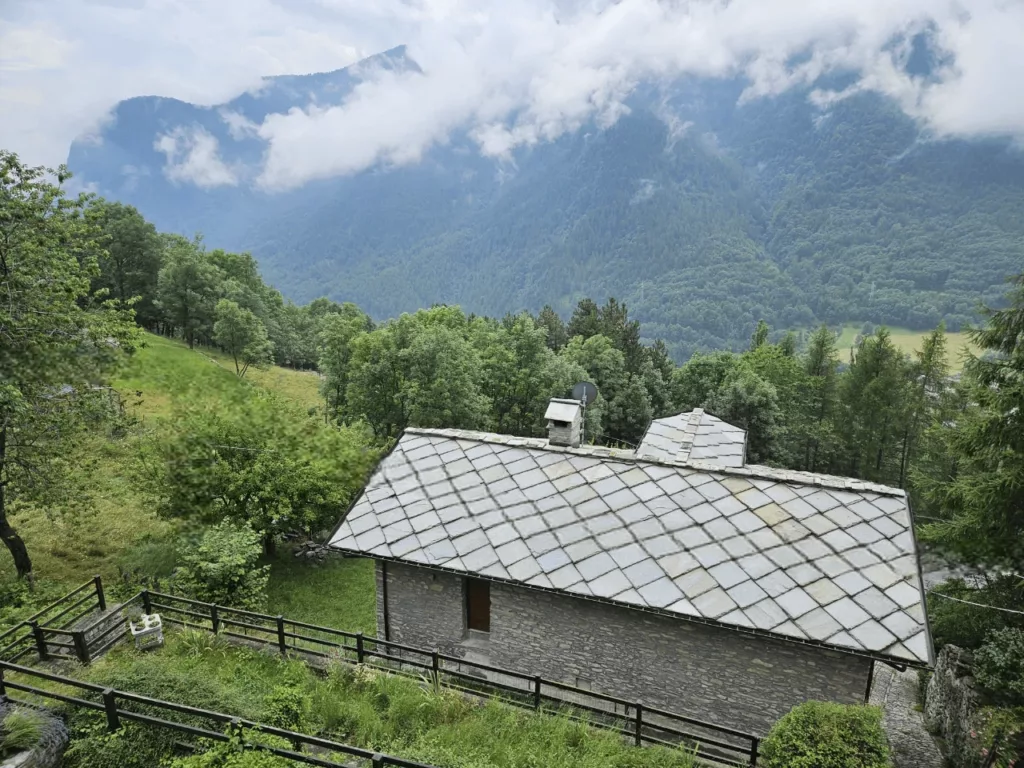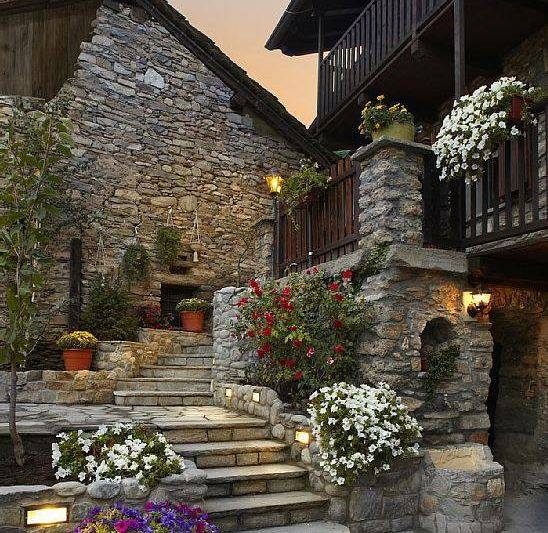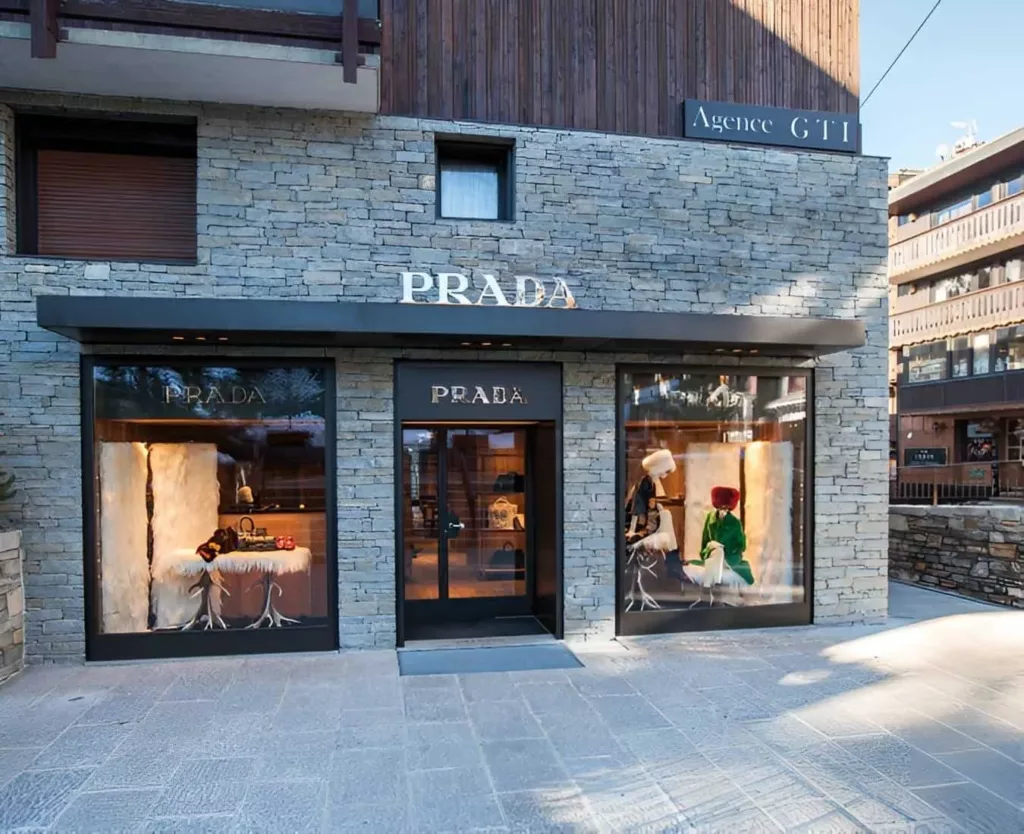Table of Contents
The Luserna stone is a natural Piedmontese rock prized by construction firms and architects for its beauty and durability. This gneiss, native to the Cottian Alps, combines an elegant appearance with high performance, making it suitable for both historical restoration projects and prestigious contemporary designs.
Geological Introduction
The Luserna stone is a metamorphic gneiss formed from the transformation of ancient Alpine rocks. It features a laminated, thin-layered structure with grey-green and white veining that defines its characteristic look. Quarried for centuries in the Cottian Pre-Alps (Val Pellice and Valle Po, between Luserna S. Giovanni, Rorà, Bagnolo Piemonte, and Barge), it has long been an identifying element of the local architecture.
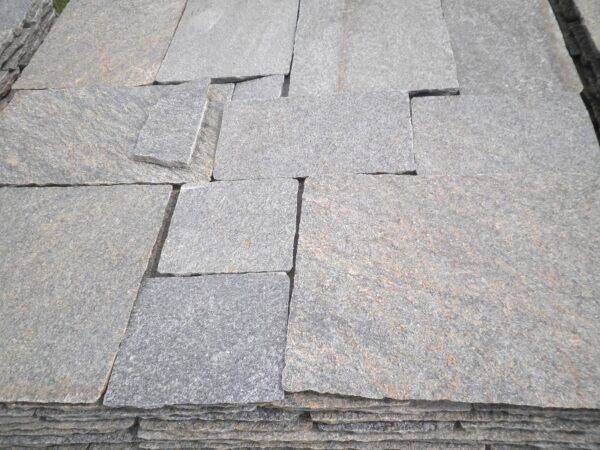
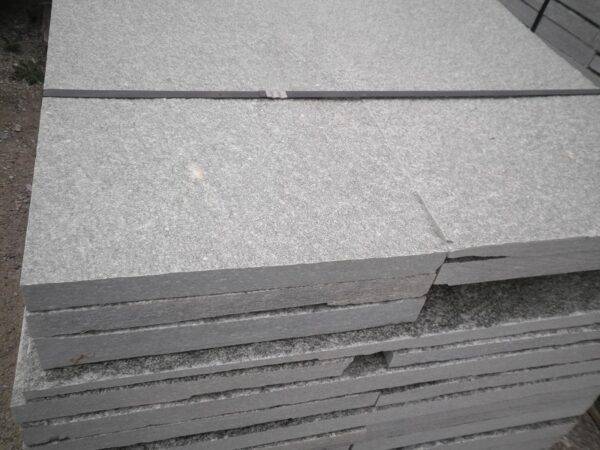
Technical Characteristics of the Luserna stone
From a technical standpoint, the Luserna stone offers high mechanical strength and durability, with values comparable to the most robust granites. Even in reduced thicknesses, the slabs withstand heavy loads without breaking.
Furthermore, it is impervious to weathering: it resists frost, rain, and thermal shocks, maintaining its performance over time. These qualities make it ideal for outdoor flooring, steps, cladding, and other demanding applications.
Visually, it offers a veined and slightly glossy surface. It provides a sober elegance that pairs easily with other materials.
It is supplied in various formats (slabs, cubes, mosaic, tiles, roofing slates, etc.).
Historical Uses
The Luserna stone boasts a centuries-long history in construction.
Since the Middle Ages, it has been used to build thousands of buildings in Piedmont, and in subsequent centuries it enriched historic palaces and Savoy residences (such as the Castello di Racconigi and Venaria Reale).
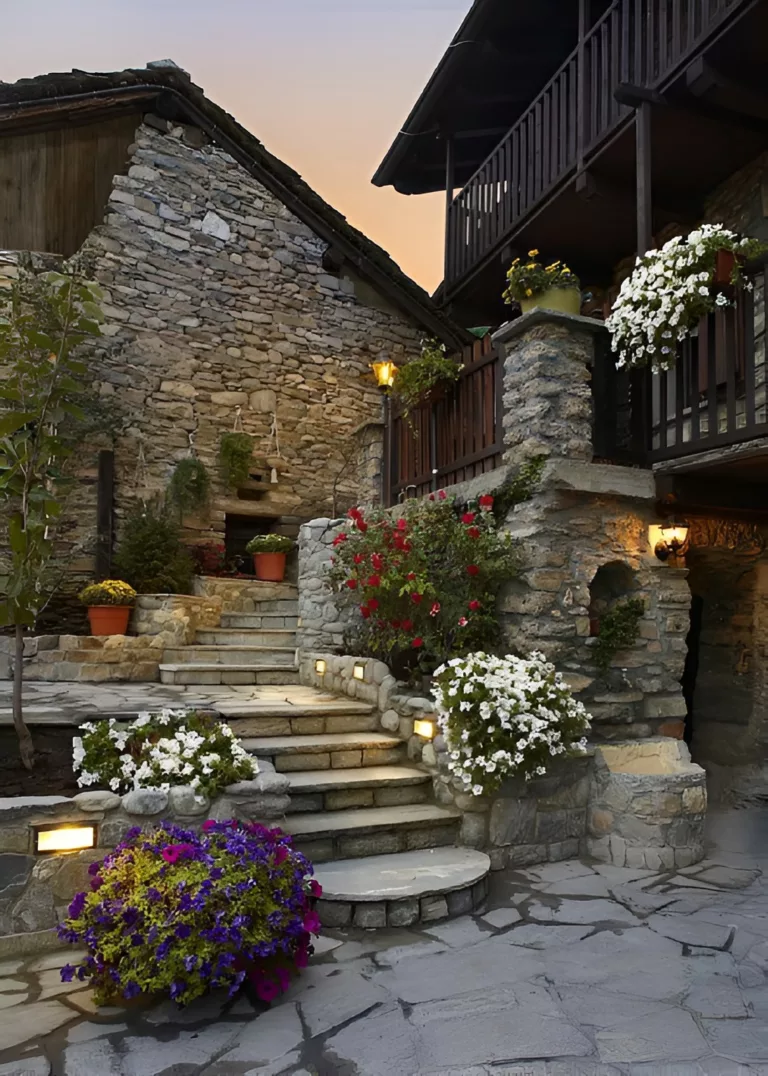
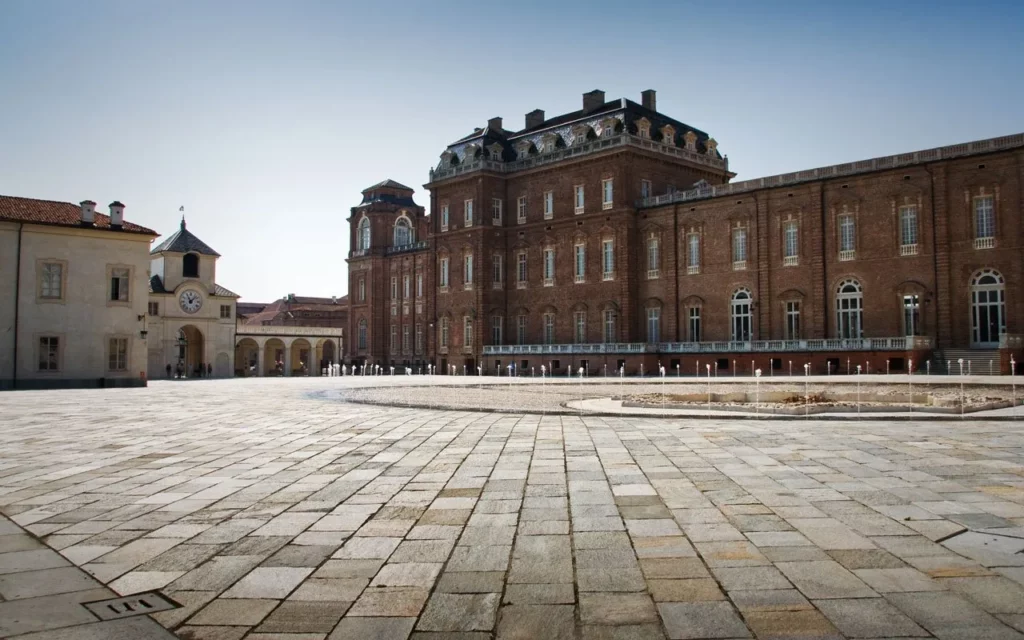
One emblematic example is the Mole Antonelliana in Turin, whose large dome was clad in the Luserna stone to ensure stability for what was at the time the tallest masonry structure in the world.
Even today, in Alpine valleys, roofs made with Luserna slates remain widespread for their weather resistance and perfect integration into the landscape.
Main Finishes
Depending on requirements, the Luserna stone can be worked with various surface finishes that highlight its qualities.
Natural split (rough) – irregular, coarse surface with a rustic look. Provides maximum slip resistance, ideal for outdoor areas (pathways, plazas).
Flamed – high-temperature flame treatment that creates a uniformly textured surface and enhances color. Recommended for outdoor paving and steps, ensuring grip and frost resistance.
Brushed (antiqued) – lightly textured surface with a velvety, aged effect. Offers an elegant appearance and good adhesion, suitable for high-end interior and exterior cladding.
Polished – mirror polishing that produces a shiny, reflective surface. Highlights veins and colors for a luxurious effect, ideal for interior spaces.
For further advice and a complete guide on how to choose the ideal finish for the Luserna stone, read our article Which finishes offer both aesthetics and functionality?
Contemporary Uses
In recent decades, the luserna stone has been featured in contemporary architectural projects beyond Italy.
Since the late 20th century, its use—once almost exclusively regional—has expanded nationally and internationally.
Today it is chosen for ventilated façades on modern buildings, urban paving in pedestrian squares, and furnishings in prestigious public spaces.
It appears in revitalized historic plazas, as cladding for museums and luxury hotels, and in contemporary gardens, demonstrating a versatility that lends identity and refinement to every setting.
Environmental Sustainability
The Luserna stone is a sustainable choice due to its low environmental impact at every stage of its life cycle.
Extraction uses diamond wire cutting and minimal explosives, reducing waste and landscape damage.
Being natural, it requires little energy to process, and its longevity reduces the need for replacements and waste.
At end of life, it can be recovered or recycled as inert material, supporting the circular economy.
It does not release harmful substances and its thermal mass helps stabilize internal temperatures, improving energy efficiency.
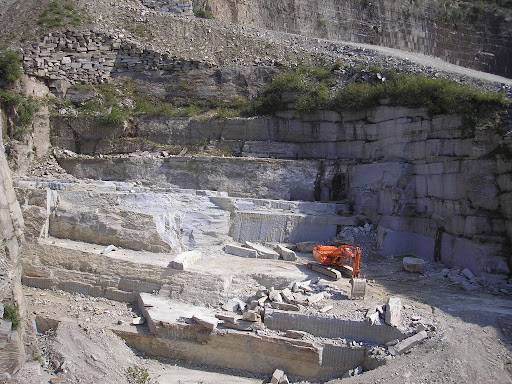
Conclusion
In summary, if you’re looking for a material that combines aesthetics, functionality, and sustainability, the Luserna stone is the right choice. For example, you can use it for flooring, cladding, or roofing, adding a touch of natural elegance to your project.
Request a quote for your project today and let us transform your vision into reality.
Articles you might be interested in
Stone Texture: All Luserna Stone Finish Ultimate Guide 2025
Explore every stone texture of Luserna stone—polished, flamed, brushed, honed and natural. Which finish best suits your project? Find out in our final guide.
Installing Luserna Stone: A Comprehensive Guide for Floors, Cladding, Stairs, and Facades
Installing Luserna Stone: a comprehensive guide with step-by-step instructions, tool recommendations, and proven methods for a stable, long-lasting, and elegant result.
Stone Cladding External Walls Built to Last in Luserna Stone
Choose Luserna for stone cladding external walls that are elegant, durable and strong—enhancing façades, improving insulation and boosting your property value.
